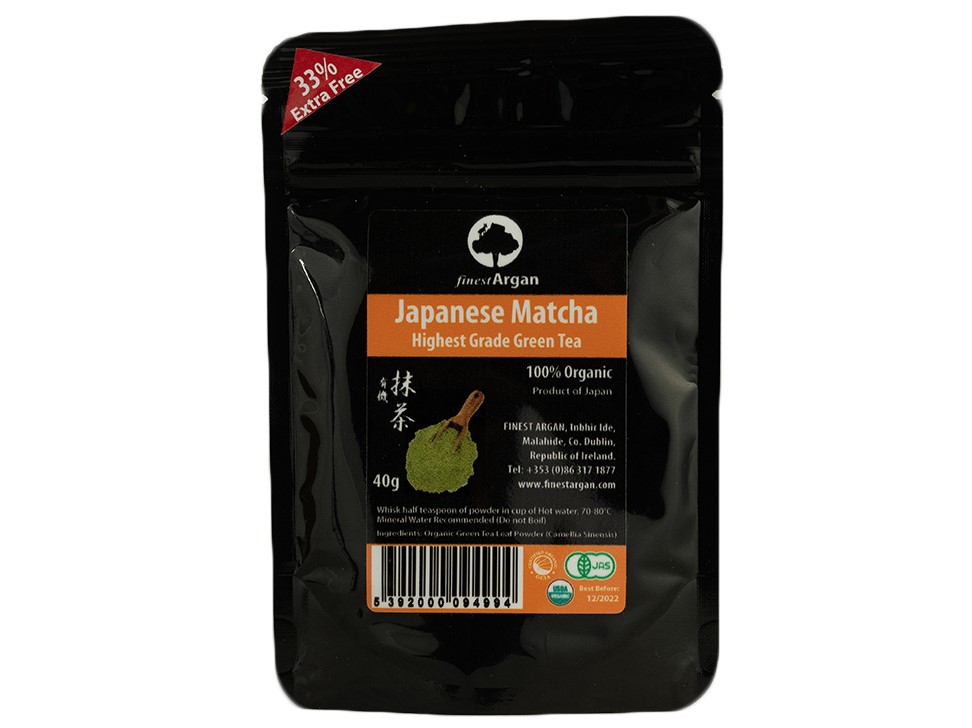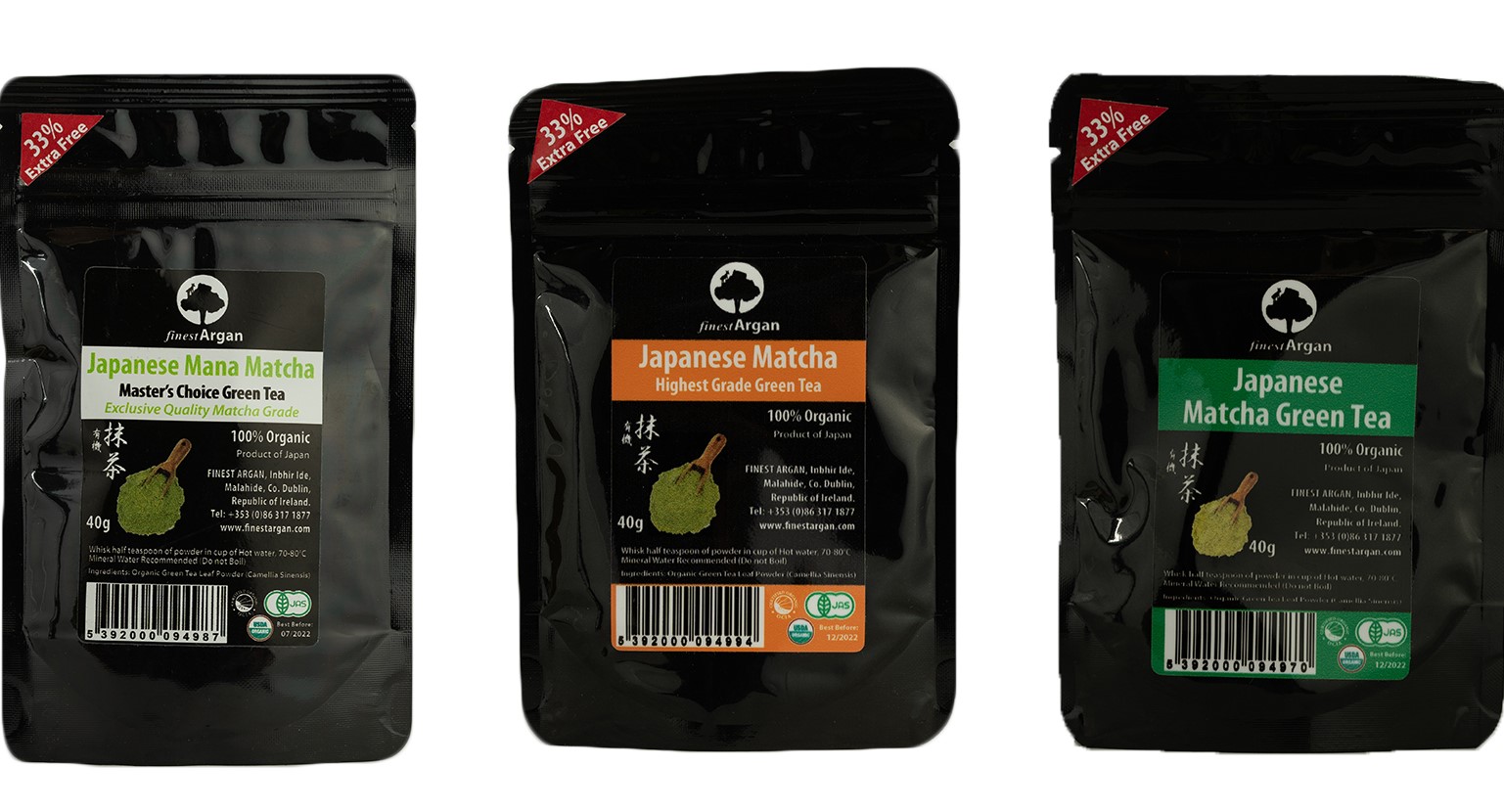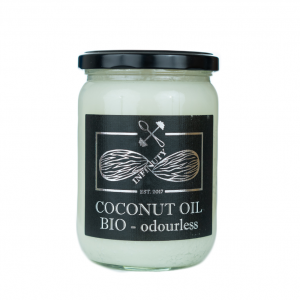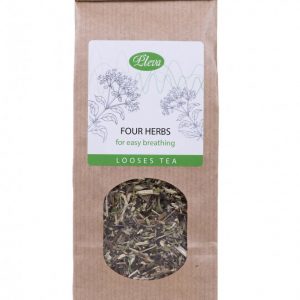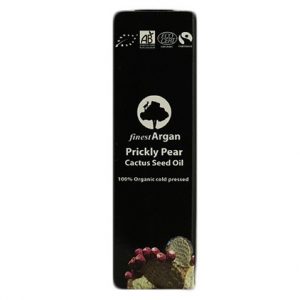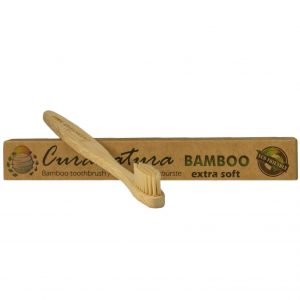Japanese Matcha Tea Highest Grade
€27.00
- Finest Argan
Organic High-grade Matcha(1st harvest) contains up to 50% more L-Theanine which creates further calming effect, focus and concentration. Used by monks through the centuries for meditation. High-grade Matcha also contains 30% more antioxidants and nutrition elements than regular grade.
Out of stock
Matcha is the healthiest green tea available!
Matcha tea has been consumed in Japan for almost 1000 years, traditionally reserved for royalty, religious dignitaries and spiritual luminaries. Matcha growth and production is a very complex and refined process, specific to the country of Japan. Matcha leaves are handpicked, and only the youngest, tenderest leaves at the tip of the tea plant are harvested. The plants are carefully shade-grown for several months prior to picking, in order to boost chlorophyll content. These precious, extremely green leaves are then inspected, lightly steamed to halt any enzymatic breakdown, and ground to an ultra-fine powder on traditional stone grinders. Matcha is simple to mix and store, and there are virtually no contraindications. Matcha is non-addictive and there are no known ‘withdrawal’ effects. Drink Matcha.your body and mind will thank you!
What Matcha contains:
Theophylline – This unique form of caffeine is found only in tea, particularly green tea. Theophylline releases very slowly, over 8-10 hours, thus providing sustained energy without the negative effects of caffeine.
Theanine – This is a new and exciting amino acid found exclusively in green tea. Theanine has been shown to significantly increase alpha waves in the brain. This induces a profound relaxing and calming effect, as well as increasing mental alertness and learning capacity.
Thermogenics – Green tea has long been studied as a weight loss aid. Research now indicates that drinking green tea can boost metabolism by 35-40%, thus increasing fat burning capacity without any adverse side effects.
Anti-oxidants – The catechins found in green tea are some of the most powerful natural anti-oxidants, thereby having a strong anti-ageing effect on the body. The antioxidants in green tea are 100 times stronger than Vitamin C, and 25 times stronger than Vitamin E. Matcha green tea contains 70 times the antioxidant capacity of orange juice and 9 times the beta carotene of spinach.
Chlorophyll – Matcha contains extremely high levels of Chlorophyll, thus the brilliant emerald green colour. Chlorophyll is one of the most powerful blood detoxifiers, as well as supporting healthy blood alkalinity.
Polyphenols and Catechins – These phytonutrients are quickly becoming known as the most potent cancer-fighting substances known to man. Matcha green tea contains the highest levels of these precious derivatives.
Adaptogenic – Green tea is an “adaptogen” which means it supports the adrenal glands by lowering levels of the “stress” hormone Cortisol.
Blood Pressure Lowering Catechins – Green Tea contains specific catechins that can lower blood pressure by preventing contraction of blood vessels through inhibition of Angiotensin.
Cholesterol-Lowering agents – Green tea has been shown to decrease the levels of LDL (‘bad”) cholesterol while having no effect on HDL (“good”) cholesterol.
Blood Sugar Stabilizers – The polysaccharides in green tea can protect against insulin spikes thus stabilizing blood sugar levels.
Anti-microbials – Green tea contains potent antibiotics and anti-virals, lending itself to the prevention and treatment of many common ailments including flu, cold, food poisoning etc. These anti-microbial catechins also prevent tooth decay and gum disease, as well as sweetening bad breath by balancing the gut microflora.
Health Benefit
Matcha is one of the healthiest forms of green tea, boasting the highest level of antioxidants. During the manufacturing process, the tea leaves (or tencha) are ground into a fine powder to produce matcha; this means that, unlike other teas in which the tea leaf is simply strained, matcha green tea allows the drinker to take in all of the nutrients available—one cup of Matcha tea has the same amount of beneficial antioxidants as ten cups of regular green tea!
- Gluten, Dairy, and Soy-free
- GMO-free
- Rejuvenating and nutritious
- Contains more antioxidants than the average cup of green tea
- Nutrition, Vitamins and Minerals
Mineral and Others
- Polyphenols and Antioxidants
- Caffeine
- Protein
- Zinc
- Potassium
- Copper
- Phosphorous
- Niacin
- Riboflavin
- Thamin
- Floate
- Pantothenic Acid
- Ascorbic Acid
Vitamins
- Vitamin A Beta Carotene
- Vitamin A Retinol Equivalent
- Vitamin B6
- Vitamin C
- Vitamin E
- Vitamin K
How to Make Matcha
Measure 1/2 teaspoon (1g) of Matcha into Bowl.
Pour 1/2 cup (100ml) of hot water, 70-80 °C into a bowl (not boiling).
Using a whisk to brush from side to side until a fine foam appears.
Farmland
Located in the pristine, mountainous areas of Uji, Kyoto, and Nara, our organic farmland is well protected from all industrial, nuclear, and urban pollution. Surrounded by trees which block out any remaining pollutants or chemical interference, our farms use no chemicals or pesticides. Our products have passed the rigorous inspections of both the USDA and JAS (Japanese Agricultural Standards), and have been granted with certifications from both.
This is an honour that not many other tea companies can boast.
NET WT. 40g
Related products
-
Sale!
Out of stock
Nut ButtersOrganic Coconut Oil Odourless
€10.00Original price was: €10.00.€8.00Current price is: €8.00. Read more -
Curanatura
Bamboo Toothbrush Extra Soft
€4.00Original price was: €4.00.€3.60Current price is: €3.60. Add to cart

